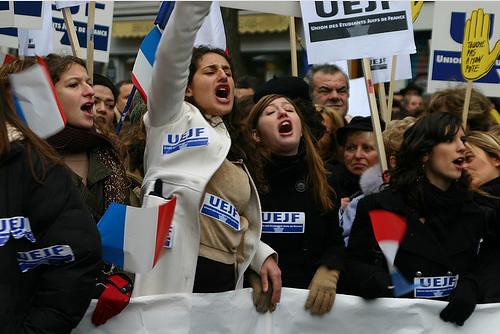 The Australian Council of Cereal Producers (ACCP) are outraged by the government’s new Cereal Consumption reform (CCR) laws. Under the new scheme, consumers are now able to purchase whatever brand and flavour of cereal they choose, regardless of how long they’d been consuming their old brand of cereal.
The Australian Council of Cereal Producers (ACCP) are outraged by the government’s new Cereal Consumption reform (CCR) laws. Under the new scheme, consumers are now able to purchase whatever brand and flavour of cereal they choose, regardless of how long they’d been consuming their old brand of cereal. ACCP Secretary Greg Kellogg said “Under the old scheme, cereal rights were protected by the guarantees achieved by the Breakfast Award system. But now consumers will be able to pick and choose what they eat on a day to day basis.”
The first victim of the new CCR laws has been the Darren Hinch endorsed All-Bran. One consumer reportedly stopped consuming the cereal because he simply “didn’t like it.” Another cereal, Wheeties, was removed taken off a consumer’s permanent the shopping list and will only be purchased when desired. ACCP officials are claiming that this is simply a taste of things to come.
When asked whether or not ACCP officials believed that the high cost of cereal consumption forced many consumers to buy their breakfasts from other isles, ACCP heavy weight “Uncle” Toby argued back: “Buts that’s not the point. Cereal is vital to Australian breakfasts and to Australian families. Just think of where this system of choice will take us! Fruit for breakfast one day, toast the next. There will be no consistency whatsoever. A consumer could be eating dog food for breakfast.”
He added: “This government is filled with former consumers and toast-lovers. They’ve been buying breakfasts for years. We’ve all heard the stories of Howard having his breakfast in bed.”
Big Consumers see the reforms in a different light. HR Nicholl says: “We see the reforms as a positive step. The previous system, made breakfast a difficult and cumbersome task. Now, not only can consumers choose the breakfast they want, spend their money how they would like too, but they also have the option of getting breakfast on the fly or skipping breakfast altogether.
“Consumers have been complaining about this system for some time. We have one member who lost her four children because after they consumed metal pieces in the Fruit Loops. But because of the Breakfast Award systems, she is till forced to buy box after box after box.
“The scare tactics of the ACCP are absurd. Many consumers will continue to purchase the same box of cereal that they have for years.
“We’ve just removed the red tape from getting cereals off the shelf, and more importantly, on the shelf too. If consumers are worried about getting cereal off their shopping list, they may never put cereal on it in the first place.
“The bottom line is this. If the cereal is tasty, quality, value for money and fills you up. You’ll stay in the panty. If not, well you probably shouldn’t be there in the first place.”












